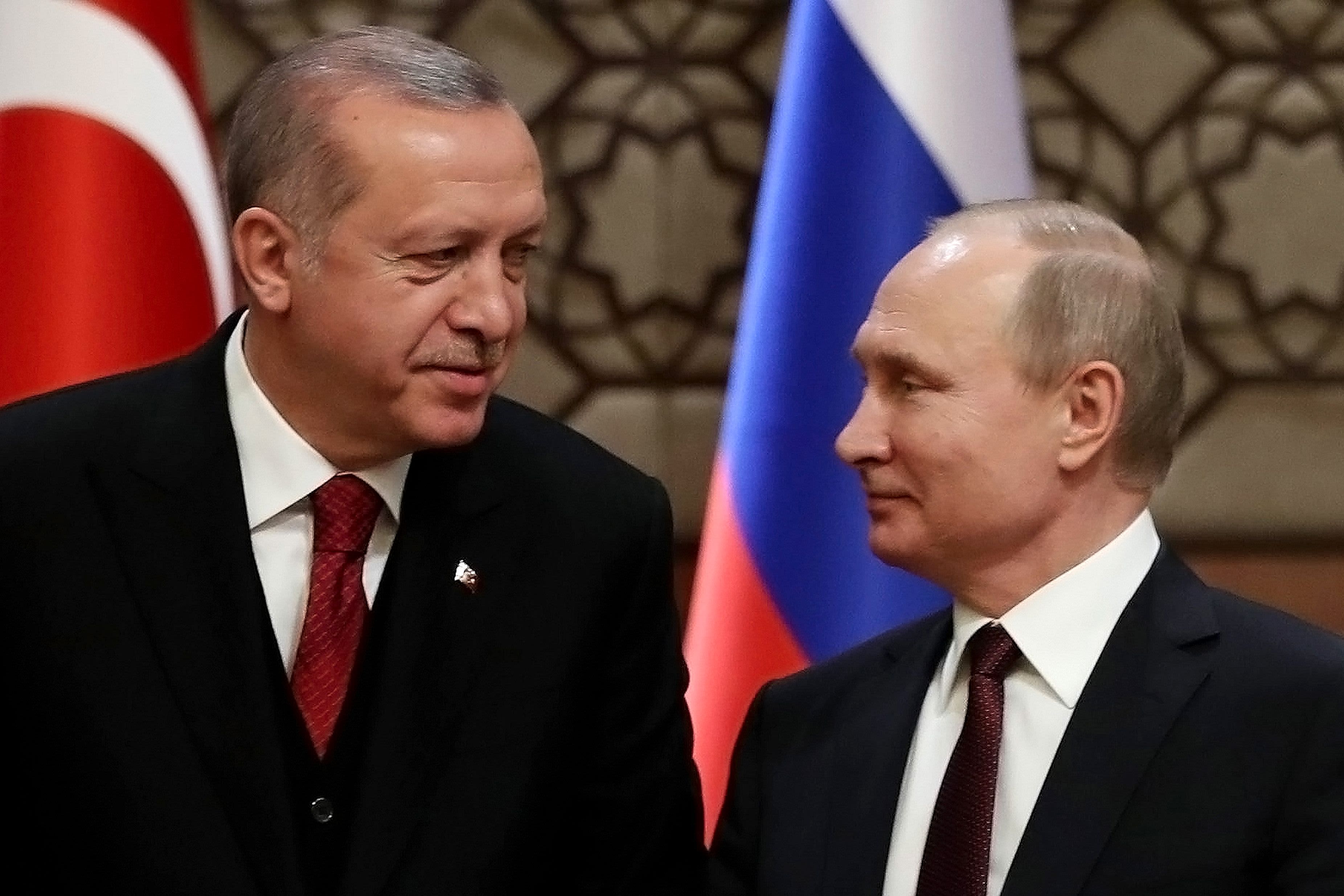U.S. condemns apparent Turkish test of Russian missile system

A rocket launches from a S-400 missile system at the Ashuluk military base in Southern Russia on September 22, 2020.
Dimitar Dilkoff | AFP | Getty Images
WASHINGTON — The Pentagon and State Department issued strong rebukes Friday following reports that Turkey’s military tested a Russia-made missile system, a move that could further stoke tensions between Washington and the NATO member.
In recent days, Turkey said it was preparing to test the Russian-made S-400, a mobile surface-to-air missile system, that is believed to pose a risk to the NATO alliance as well as America’s most expensive weapons platform: Lockheed Martin’s F-35 fighter.
Ankara brokered a deal with Moscow in 2017 for the S-400, despite warnings from the United States and other NATO allies. Moscow delivered the first of four missile batteries in July 2019. A week later, the United States cut Turkey, a financial and manufacturing partner, from the F-35 program after Ankara accepted delivery of the Russian-made system.
Both the departments of Defense and State condemned Friday’s apparent missile test off Turkey’s Black Sea coast but would not confirm if the launch occurred.
“The United States has expressed to the Government of Turkey, at the most senior levels, that the acquisition of Russian military systems such as the S-400 is unacceptable,” State Department spokeswoman Morgan Ortagus wrote in an emailed statement. “The United States has been clear on our expectation that the S-400 system should not be operationalized,” she added.
“We object to Turkey’s purchase of the system and are deeply concerned with reports that Turkey is bringing it into operation. It should not be activated. Doing so risks serious consequences for our security relationship,” echoed chief Pentagon spokesman Jonathan Hoffman in an emailed statement Friday.
Striking a deal with the Kremlin
Turkey’s President Recep Tayyip Erdogan (L) and Russia’s President Vladimir Putin last April.
Adem Altan | AFP | Getty Images
The S-400, the successor to the S-200 and S-300 missile systems, made its debut in 2007. Compared with U.S. systems, the Russian-made S-400 is believed to be capable of engaging a wider array of targets, at longer ranges and against multiple threats simultaneously.
In multiple efforts to deter Turkey from buying the S-400, the State Department offered in 2013 and 2017 to sell the country Raytheon‘s Patriot missile system. Ankara passed on the Patriot both times because the U.S. declined to provide a transfer of the system’s sensitive missile technology.
In 2017, Turkish President Recep Erdogan brokered a deal reportedly worth $2.5 billion with Russian President Vladimir Putin for the S-400 despite warnings from the U.S. that buying the system would come with political and economic consequences.
Under the Countering America’s Adversaries Through Sanctions Act, which President Donald Trump signed in August 2017, Turkey could be slapped with economic sanctions for accepting the Kremlin’s missile system. The United States has not issued these sanctions on Turkey.
“The administration’s peculiar failure to implement CAATSA as the law requires is both a moral hazard and in marked contrast with the posture of ‘maximum pressure’ pursued in so many other cases,” explained Thomas Karako, director of the Missile Defense Project at the Center for Strategic and International Studies.
“Erdogan seems to have made a strategic choice to prefer Russia over the United States and other NATO allies. There are some hard questions that need to be raised about just what kind of ally Turkey is, exactly, and the future of Turkey’s place in NATO,” Karako added.
Despite facing potential U.S. sanctions, a dozen countries have expressed interest in buying Russia’s S-400 missile system.
A Russian S-400 surface-to-air missile system.
Sergei Malgavko | TASS via Getty Images




